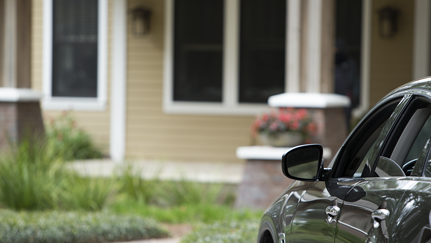
You want to make certain that your cars are adequately insured. Given your budget and preferences, how do you determine what level of auto coverage is right for you?
While everyone needs an adequate amount of liability insurance by law, state minimums are actually very low, according to Jeanne M. Salvatore, senior vice president, chief communications officer, Insurance Information Institute. “They could be as low as $20,000,” she says – and for most people, this is far from sufficient.
You need to protect the money that you have put away, as well as anything you might own, she says. “Protect your assets – because when you buy auto insurance, you’re basically getting coverage in the event you get into an accident and you get sued,” Salvatore explains. “The liability portion pays for your legal defense and also for the judgments against you.”
Salvatore’s recommendation for most people is to get a minimum “100/300” liability policy, unless one’s assets are unusually high. This means coverage of $100,000 of liability insurance per person and a total of $300,000 liability insurance per accident. Learn more about the cost of car insurance and what factors play a role.
Determining your coverage limits
How much car insurance you should buy depends on what you may have to lose. If you have few assets, the minimum level required by your state may do. However, this won’t be nearly enough for most people, Salvatore warns. “If you have a good job, savings for your retirement or college funds for your kids, you want to financially protect that,” she says. Whatever money you have put away is at risk if you are sued after an accident without adequate coverage. This is especially important for young or teen drivers who are just starting out on the road.
Salvatore advises individuals to make certain they have a high enough level of insurance to cover their assets. To determine how much auto insurance you need, figure out how much you stand to lose in the event of a serious automobile accident. This may mean supplementing a standard auto insurance policy with excess liability or an umbrella liability policy that will protect you after your underlying coverage has been exhausted.
“What you can do is buy an additional $1 million, $2 million, whatever you feel you need over and above the underlying limits,” Salvatore says.
Auto coverage types to consider
While both excess liability insurance and umbrella insurance can provide needed coverage, there are important differences between the two. Excess liability raises the automobile coverage limits, while umbrella coverage is broader. An umbrella policy offers an extra layer of liability protection for your assets if you’re in a serious auto accident or if there is a serious accident on your property. Umbrella coverage protects you from liabilities above your current auto or homeowners limits. So, if you buy an umbrella policy, you’re only buying one policy that provides coverage over and above all of your policies, Salvatore explains.
If you are financing the purchase of a new car, you should consider gap insurance, Salvatore suggests, “because the value of the car depreciates quickly.” If the new vehicle is totaled, you may find you owe more than the car is actually worth.
On the other hand, if you have an older car, you may want to reconsider your deductible levels. “You could consider getting a higher deductible for comprehensive and collision,” Salvatore says. Ultimately, it is a question of crunching the numbers for your vehicle and weighing the cost to repair or replace your vehicle against how much the policy will cost.
In the end, whether you have a brand new car or one that has already traveled many miles, you should have the experts help you determine how you can best protect your assets without overspending. Contact your insurance agent to discuss your specific policy limits and adjust your coverage or get a car insurance quote online.
